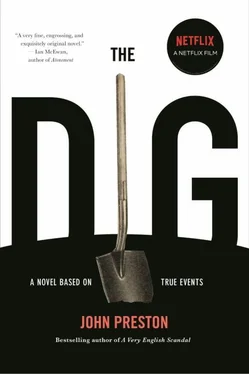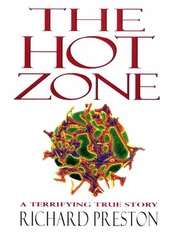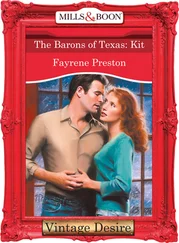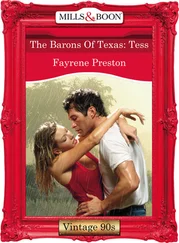Mr. Vuillamy then asked why no body had been found in the grave. That, said Mr. Phillips, was not an easy question to answer. There were a number of possible explanations, of which two stood out. The first was that this might be a memorial — a cenotaph — to mark the death of someone who had died elsewhere. Alternatively, the body might simply have been destroyed by acidity in the soil. Suffolk soil, he said, with a nod in the direction of Mr. Brown, had an unusually high degree of acidity, especially in this area.
“You mean the body might simply have disappeared?” Mr. Vuillamy asked.
“That is correct. Although such cases are admittedly unusual. Almost always there are some signs of a presence, however faint. Usually it is the teeth.”
These, he declared, were usually the last things to rot. Long after the bones had powdered away, the teeth would stay embedded in the earth, as hard as olive stones.
“How long do teeth take to rot?” Mr. Vuillamy wanted to know.
“I cannot answer that question,” Mr. Phillips replied. “It would depend entirely on the composition of the soil.”
“Could you make an informed guess in this case?”
Mr. Phillips regretted this was impossible. To do so, he said, would involve a degree of speculation incompatible with his professional expertise.
“I understand… And do you have any idea whose grave — or memorial — this might be?”
Yes, Mr. Phillips said, he thought he did. The most likely candidate was King Raedwald, who was king of East Anglia from about AD 599 to his death in about 625. According to the Venerable Bede’s Ecclesiastical History of the English People , Raedwald held sway over all the provinces south of the River Humber.
“Was King Raedwald a Christian?” he was asked.
That too was difficult to say, Mr. Phillips told him. “From the evidence of the treasure, he had both Christian and pagan loyalties. There are silver spoons and bowls with crosses upon them. However, there is also metalwork with pagan symbols on it, such as the gold and garnet jewelry with its interlaced birds and beasts.”
“So you could say that he was hedging his bets?” said Mr. Vuillamy, to a burst of laughter.
“You could indeed,” Mr. Phillips agreed. “And by the same token, the objects discovered are a mixture of the official and the personal.”
“Could you explain that more clearly, please?”
Mr. Phillips looked over the rows of attentive faces and sighed. “By official, I mean that the dead man would be expected to fight on behalf of his people in the next world. As a result, there is a shield and a scepter, as well as the remains of a helmet. As for personal objects, possibly placed there by a loved one, these include a washing bowl, shoes and various keepsakes, along with knives to trim his nails and beard.”
At this point the door opened to admit two late arrivals: Mr. and Mrs. Piggott. From the brief glimpse I had of her before she sat down, Mrs. Piggott appeared to have lost weight, or perhaps she was just looking tired after her journey. No sooner had they settled themselves than Mr. Piggott was called to give evidence. He was also asked about the lack of a body and confirmed that it was not unheard of for a body to disappear completely. He had personally come across a number of cases where this had happened.
“No teeth or anything?” asked Mr. Vuillamy.
“Not even teeth,” Mr. Piggott confirmed apologetically.
Due to the time — almost one o’clock — and the temperature, Mr. Vuillamy suggested we break for luncheon. People sat about among the mangolds, chattering and picnicking. Mr. Piggott stood beneath a tree, talking to Mr. Brown, while Mrs. Piggott went to stroke a horse which had hung its head over the fence.
I went and rested in the car. All this talk of decay, of obliteration, of any human imprint being swept away, had left me quite unfit for company. Of course, one could believe in the spirit surviving and not the flesh. As Mr. Swithin had so often reminded me, different rules applied. At that moment, though, they seemed as fragile and impermanent as each other. Nothing endured, not in any sphere. There were no voices clamoring to be heard, no messages coming from some unimaginable beyond. That surely was the truth. Everything else was delusion. Crumbs of comfort to keep the pangs at bay.
People stared in curiously through the open window. Closing my eyes, I leaned back against the hot leather and willed them to go away. After an hour, everyone was summoned back to the village hall, where Mr. Vuillamy summed up the evidence. Once he had done so, he told the jury that as far as he was concerned, there was no evidence to suggest the owner of the treasure intended to come back and retrieve it.
Although it was naturally difficult to attribute motives to people who were long dead, he cited, by way of legal precedent, the case of the South Staffordshire Water Company v. Sharman (1896). In this case the owner of the land — rather than the workmen who had made the discovery of a hoard of ancient coins — was deemed to have been the legal finder.
The jury was asked to retire to consider their verdict. Unfortunately, the only other room in the village hall was the gentlemen’s lavatory. They made their way through the door in single file, accompanied by rather more laughter than before. Due to lack of space inside the lavatory, the chairman of the jurors asked if they might leave the door open.
Mr. Vuillamy, however, decided he could not permit this in case anyone should overhear their discussions. By the same token, he ordered that the window should remain closed throughout. Everyone sat in silence, or conversed in low voices, while the jurors conducted their deliberations. I took this opportunity to ask Mr. Brown, Mr. Maynard, Mr. Reid Moir, Mr. Phillips and the Piggotts if they would care to come back to Sutton Hoo House for tea afterwards.
Twenty-five minutes later, the jurors re-emerged, in shirtsleeves now, with several of them mopping their brows with pocket handkerchiefs. A piece of paper was passed to Mr. Vuillamy, who read it and once again consulted with the chief constable. He then tapped the microphone: the jury, Mr. Vuillamy announced, had unanimously decided that the objects found were not treasure trove. As a result, Mrs. Edith May Pretty of Sutton Hoo House was the rightful owner of everything that had been discovered.
The verdict hardly came as a surprise. After Mr. Vuillamy’s summing-up, the jury would have had to have been very obtuse to come to any other decision. Nonetheless, everyone turned to stare at me in a direct, almost devouring manner. As I tried to leave, there was an unseemly scrum. The press of people on all sides almost lifted me off my feet. With Mr. Reid Moir on one side and Mr. Brown on the other, I was escorted back to the car. Lyons was standing there with the door already open.
We drove out of the mangold field and back onto the road. I should have felt delighted, of course. That was what everyone expected. But I did not. I felt no sense of abundance; I felt only lack. On the way home, I forced myself to concentrate on the view: this narrow strip of tarmac disappearing over the horizon, with fields of ripened barley on either side like an inappropriately parting sea.
Mr. Reid Moir, Mr. Maynard, Mr. Phillips and the Piggotts arrived at the house a few minutes after I did. Mr. Brown followed them on his bicycle. Everyone said how pleased they were for me — although not in Mr. Phillips’s or Mr. Reid Moir’s case with a great deal of conviction.
After that, a brittle sort of heartiness took over. At one stage, Reid Moir said how important it was that the finds should be properly displayed, by people who really cared for them and who had a connection with “the locality” — but when no one took up this suggestion he fell silent. Nobody asked directly what I intended to do with the treasure.
Читать дальше












